 Sticky post
Sticky post
Not merely for the west
Speaking, writing, expressing in English rather than the mother tongue could be misunderstood as a way of the privileged showing off Continue reading Not merely for the west
 Sticky post
Sticky post
Speaking, writing, expressing in English rather than the mother tongue could be misunderstood as a way of the privileged showing off Continue reading Not merely for the west

To: Organizers of the “Becoming Bangladesh” panelLSE South Asia Centre February 8, 2021 A response to “Becoming Bangladesh” (138 SIGNATORIES as of February 10th) It has recently come to our attention that you have organized a panel titled “Becoming Bangladesh” to celebrate … Continue reading A response to “Becoming Bangladesh”

Why the artificial conflict of life and livelihood? by Moshahida Sultana (translated from Bangla original in Prothom Alo) Corona test costs about Tk 5,000 sitting at home privately. And the cost of one month as government financial assistance has been … Continue reading Why the artificial conflict of life and livelihood?

1. Worker Diaries Money Diary: A 25-Year-Old Garment Worker In Bangladesh On 1k 2.Wage Digitization [Excerpt] According to a recent report on wage digitization in the ready-made garment (RMG) sector in Bangladesh, about 1 million workers are now receiving their … Continue reading Garment Worker Diaries, Digitization, Pay Gap
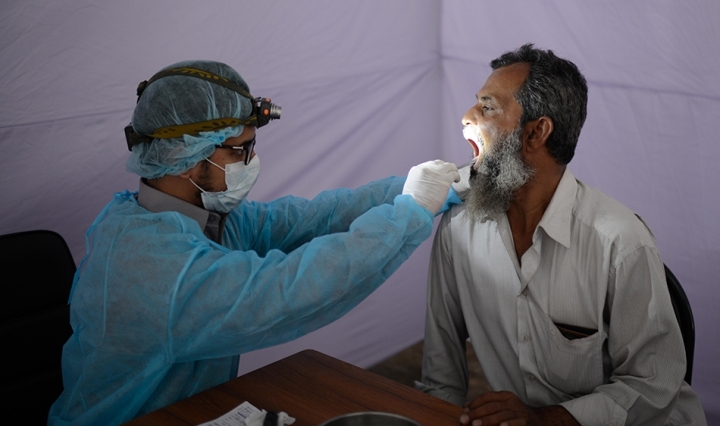
Dr Sil invented a similar kit for detecting the SARS coronavirus while working in Singapore during the outbreak of the respiratory disease in 2003. Continue reading Bangladeshi scientists invent $3 COVID test

REUTERS/Mohammad Ponir HossainIndia’s WIRE magazine has published a timeline compiled by Alal O Dulal collective. The Sources are: The Rohingyas: Inside Myanmar’s Hidden Genocide (Hurst), Exiled to Nowhere: Burma’s Rohingya (Nowhere People), Human Rights Watch, United Nations, Global Center for the … Continue reading Rohingya Timeline (1784-2017)

Syed Jamil Ahmed’s first play in two decades, RIZWAN, opened on September 01 at Shilpakala Academy (closes Sep 10). The play, based on an English poem about Kashmir, is experimental, raucous, jubilant, and always challenging the material limits of a stage. The audiences have responded with hunger, Shilpakala has been running sold out shows. Responses have ranged from enthusiasm by those already used to experimental fare from Prachyanat, Bot Tola, and others, to the nervous responses of an old guard still not able to embrace radical theater for a new Bengal.

Agha Shahid Ali (Source: Academy of American Poets)
Debates about RIZWAN range widely, but few audience members have been curious about the source material- Agha Shahid Ali’s poem on Kashmir, THE COUNTRY WITHOUT A POST OFFICE. Ali’s 1997 poem is a landmark of Indian-American/Indian diaspora poetry. Considering the popularity of the play, paired with the experimental opacity of the on-stage dialogue, we present here the original poem, preceded by a sparkling new translation done by Azfar Hussain.
Continue reading “Agha Shahid Ali by Azfar Hussain”
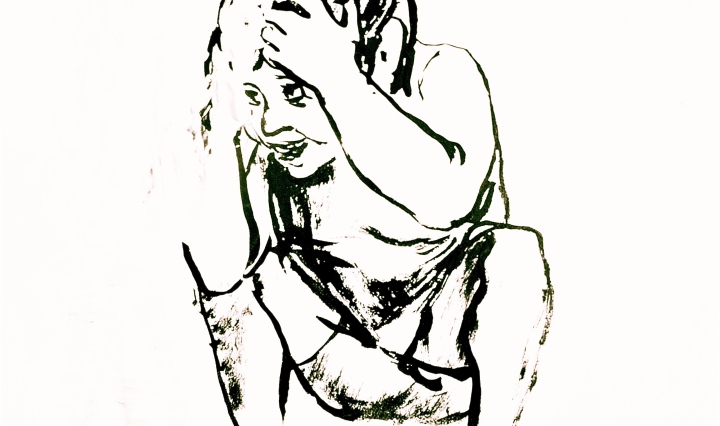
by Faruk Wasif
In the name of non-standardising, a luminous (yet stupid) collective wishes to drag Bengali down to a demotic vernacular. However, to remove inherent, traditionalist inflexibility within the language, all dialects – from Tagore to Abbasuddin, from Calcutta to Sylhet – should be used profusely; so that, the real (or main) parts of the language (and its literature) can include tongues of all Bengalis. Continue reading “Neo-Bangladeshi Collective”

by Sabhanaz Rashid Diya
I have been playing the narrative repeatedly inside my mind. Many have written to me asking what can we collectively do. What makes a boy pick up a gun instead of protecting his friends when facing death? I am not a parent, but I can tell from my experiences while still gathering my thoughts. Continue reading “Drishtipat saved me from brainwashing”
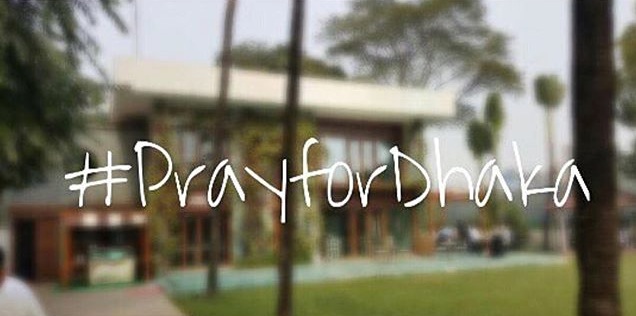
by Firoz Ahmed, translated from Bengali
Bangladesh has not seen this type of ferocious attack and killing of innocent people before. We express our deepest sympathy to the families of the victims, although no amount of consolation can soothe them. Our thoughts are also for the injured and terrified. Everyone in the country is feeling the anxiety and uncertainty. Continue reading “Holding the Economy to Ransom”

By Fardin Hasin for AlalODulal
In March 2016, a girl was brutally raped and murdered inside Comilla Cantonment. The crime was surrounded by a lot of mysteries, most of which are yet to be brought to light due to the authority’s unwillingness to do any proper investigation. People were quick to react; protests sprung up in both Dhaka and Comilla along with some other places. The hashtag #JusticeForX (I will not reveal her name here for reasons I am going to explain later) spread throughout Facebook; often complemented by cover photos depicting the words ‘Justice For X’ superimposed on the victim’s picture.
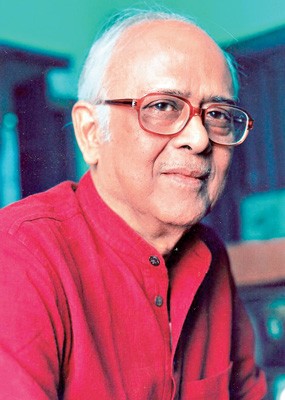


By Fardin Hasin
Football used to be the popular sport of Bangladesh — once. Many would remember the Abahani-Mohammedan rivalry that dominated our sports scene in the 70s and 80s. Continue reading “Rise of cricket and flutter of the flag “

(Translated by Awrup Sanyal for AlalODulal Collective)
I have heard that when he went up to receive his award he had to hear the condescending remark, ‘hope you are being able to eat rice’! Continue reading “Rafiq Azad: The Truth Had Touched Him”

[Originally in Bangla for Istishan; Translated by AlalODulal Collective]
Many countries, generally, bar construction of coal-based power plants, which cause dire environmental pollutions, within 15 to 20 kilometers of protected forests and settlements. The proposed 1320 megawatt Rampal coal-based power plant, according to the International Energy Agency’s (IEA) report, is only 14 kilometers from the Sundarbans, which is only four kilometers from the government’s designated 10 kilometers of Environmentally Critical Area — and hence, it has been claimed to be environmentally safe. Continue reading “Rampal: Project of Mass Destruction”

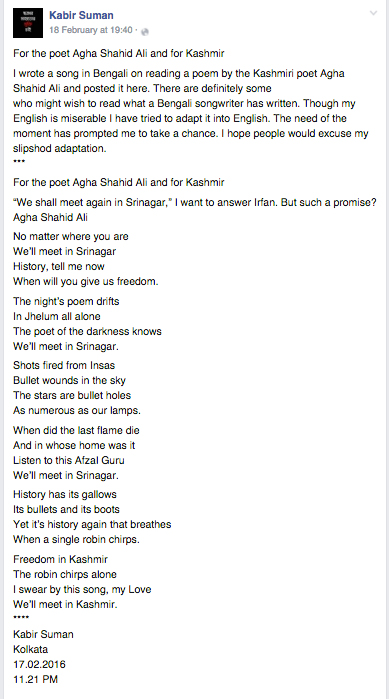

By Ahmad Ibrahim On 7 February 2016, Indian artists Ritu Sarin and Tenzing Sonam had their photographs and art installations removed from the Dhaka Art Summit taking place in Shilpakala Academy. Huffington Post (India), Indian Express, and the artist Tenzing Sonam’s … Continue reading Tibetan Artists Silenced at Dhaka Art Summit

In depicting time and places historians often argue pivotal roles of religion. Regions across the planet had been defined through advent and subsequent religious conquests. Religious (and ethnic) tensions remain omnipresent as religious unrest reverberates many parts of the world. Continue reading “A reply on the Eaton thesis”

By Zirwat Chowdhury for AlalODulal.org

By Fardin Hasin for Alal O Dulal
The intellectual and political circles of Bangladesh have, for a long time, based their ideas and actions on or around a monolithic image of Bangladesh. Most discussions and debates have considered our ‘Bangalee’ identity as a constant, and the history of ‘Bangalees’ as linear; the other side of the story, as seen by much of the right-wing intelligentsia, seems to focus solely on our identity and history as ‘Muslims’. Both sides have a point, but we are all missing a greater part of the picture, that is, a country cannot progress in peace if it chooses to reduce all its citizens into a singular identity. Continue reading “Multiculturalism in Bangladesh: where our political and intellectual debates end”

By Debdulal Munna, translated by AlalODulal
The name of the movie is ‘Mor Thengari’. The language is Chakma. Continue reading “First Chakma Film: Mor Thengari”


By Fardin Hasin for Alal O Dulal
Recently, the Institute of Electrical and Electronics Engineers (IEEE) branch of one of the leading engineering universities in Bangladesh organised a seminar on cyber-physical systems. There was only one speaker — a CSE graduate from the Bangladesh University of Engineering and Technology with excellent academic record, who is also an assistant professor in a research lab in a reputed American university.
Continue reading “Why science and technology failing developing nations”

by Ahmed Badall for Alal O Dulal
[Translated by the Alal O Dulal Editorial Collective]

How I wear my sari, what is it to you?
By Shamima Mitu, Womens Page; translated for AlalODulal.org by Zahur Ahmed Continue reading “How I wear my sari, what is it to you?”

by Zahur Ahmed for AlalODulal
Feedback’s quintessential song for Pohela Boishak, the first day of a Bengali New Year, “Melay Jaire” has a line on the third stranza, “বখাটে ছেলের ভিড়ে ললনাদের রেহাই নাই — the crowd of ruffians won’t spare the girls”. The lyricist Maqsoodul Haque had a deep insight into our tradition, culture and attitude. What might have been overlooked as a humorous innuendo has become a sad reality during this year’s Bengali New Year celebrations, as a number of women fell victims to horrid gang assaults on broad day light amid the thousands enjoying the festivities.

“[Saki’s postion] dislodge[s] current fixed notions of “left versus religion”, “left as irrelevant to modern political and economic formations”, etc in a way that we may be reminded of earlier historical moments when Maulanas could be “RED” and when calls for redistributive justice galvanized movements for democratic rights.” Continue reading “Zonayed Saki: What could a leftist leader offer Bangladesh today?”

“A mean and uncivilized act that insults not only the work of the young participants of the photography workshop but all the associations that are active in the neighborhood.” Continue reading ““Bangladeshis, Leave Rome” and Nazi Swastikas”

The national anthem of Bangladesh, penned by Tagore, is not exclusively sung on one side of the fence, neither is its use stringently limited for the national occasions of Bangladesh. Unlike the national anthem of most nations, Bangladesh’s national anthem has an everyday appeal in its core that keeps it alive amid the unremarkable occasions, especially in West Bengal where it does not get limited by its officialdom.
Continue reading “CULTURE: Rift between two Bengals”

“For several decades, the indigenous populations of North East India have claimed that their lands were coming under threat from Bangladeshi migrants, though many of them actually had identification papers from the border districts of Assam.” Continue reading “Nagaland Lynching: More Than a Protest”

বুঝলাম, টেনশনে আছি।
কিসের টেনশন ?
অনেক কিছুর।
Continue reading “Diary of Cricket Anxiety”


Continue reading “Saudi Hip-Hop: “They say Bengalis are thieves””

By Mahmood Sadat Ruhul for Alal O Dulal
“…nonchalant way the allegations have been swept aside by hordes of Bangladeshis beating the nationalist drum.”
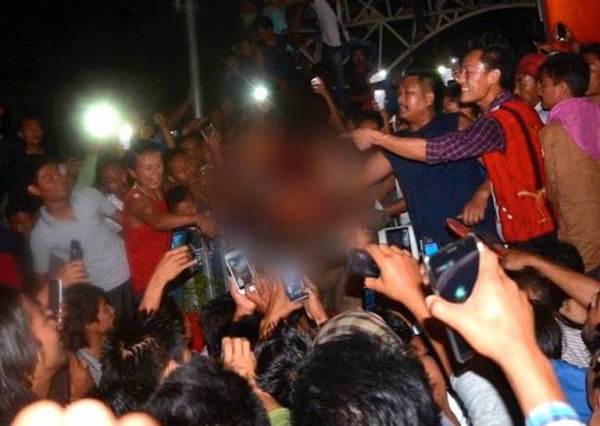
[I]n the Northeast [of India] IBI no longer has a literal meaning nor is it about citizenship, it is a racist shorthand, a template; a discursive formation under consolidation since the late 1970s which represent Bengali Muslims in the Northeast…”
Continue reading ““Illegal Bangladeshi Immigrant” & India’s Honour”
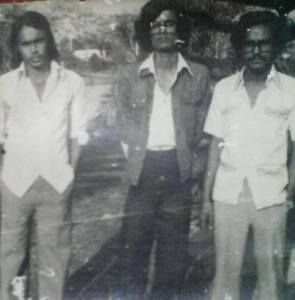
Remembering Humayun Faridi
by Anu Muhammed for Alal O Dulal
Continue reading “Remembering Humayun Faridi”

Return of the Opinion Makers
by Zahur Ahmed for Alal O Dulal
Another year marks more doldrums, further loss of lives, sensational news cycles, the return of the opinion makers and powerful foreigners. Continue reading “Return of the Opinion Makers”

While we discuss Bangladesh politics- India comes up automatically. Regional hegemony, friendship and bitterness, mutual interest, influence over Bangladesh’s internal politics- hosts of many other issues make India an important and inseparable factor in Bangladesh. Continue reading “Comparison of India and Bangladesh”

একাত্তরে স্বাধীন বাংলা বেতার কেন্দ্রে গীতিকার গোবিন্দ হালদারের লেখা সেই অবিস্মরণীয় গানগুলো হলো- ‘মোরা একটি ফুলকে বাঁচাব বলে…’, ‘এক সাগর রক্তের বিনিময়ে…’, ‘পূর্ব দিগন্তে সুর্য উঠেছে রক্ত লাল রক্ত লাল রক্ত লাল…’, ‘লেফট রাইট লেফট রাইট…’, ‘হুঁশিয়ার হুঁশিয়ার…’, ‘পদ্মা মেঘনা যমুনা তোমার আমার ঠিকানা…’, ‘চল বীর সৈনিক…’, ‘হুঁশিয়ার, হুঁশিয়ার বাংলার মাটি…’।
Continue reading “Red Salute to Gobinda Halder”

The brutal death of Korpan Shah has raised enough hue and cry amid the media and public, partly because of its viciousness, and mostly because of its alleged perpetrators. Following an alleged theft of cell phone from the hostel of N.R.S. Medical College, Kolkata, the psychologically challenged Mr. Shah was lynched to death, allegedly by the students of premier institution. Continue reading “Korpan Shah and the Medical Malady”

In the 80s Kabir Suman was working as a journalist for the Voice of America, under the Reagan administration. This is an inside view from those times as he retraces the genesis of the rise of Taliban. This was written in the wake of the senseless heinous act of Tehreek-e-Taliban Pakistan in Peshawar where they killed innocent school children in an army school. Continue reading “Kabir Suman on the origin of Taliban”
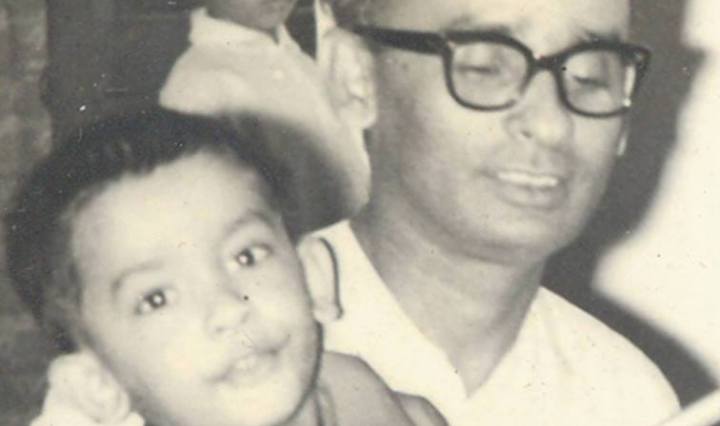
‘He’s a great humanitarian, he’s a great philanthropist
He knows just where to touch you, honey, and how you like to be kissed
He’ll put both his arms around you
You can feel the tender touch of the beast
You know that sometimes Satan comes as a man of peace’ Continue reading “A Man of Peace”
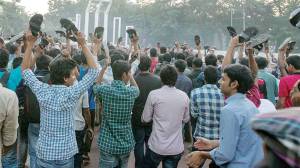
By Saba Homaira Ahmad
“Saba makes a great point: there is something to be said about elitism in ‘civil society.’ It is worth asking why the sense of disenfranchisement among students exists in the first place” – Navine Murshid, Assistant Professor of Political Science, Colgate University

For India, it took the shape of Hindu right-wing and their counter-imposition of a false construct of Hindu and Indian identity. The irrelevant political force of Hindutva took the centre-stage, asserting its claim on the identity of ‘Indian-ness’ and ‘Hindu-ness’. And like any two compatible hegemony, down the lane, there were a political pact between the two. Once it was realised that the gullible globalised middle-class can be bought and bribed and made to want almost anything with enough packaging and with enough lucre, the only question remained how long it would take.


“One of the reasons that so far GA and JI got all the leniency and privileges is partly due to the divisions in the anti JI, pro war crimes trials and Shahbagh/Projonmo Chottor lobbies.”
[Asif Munier is the son of Munier Chowdhury, a playwright and intellectual killed by Al Badr forces in 1971. He is the Vice President of Projonmo 71, an organization of the children of the martyrs of the liberation war of Bangladesh]
Continue reading “Munier Chowdhury’s Son Speaks”

What is harder to explain, however, are the actions of us independent Bangladeshis. The fact that we allowed him to return to the country he conspired against. The fact that he was allowed to stay here for 16 years – from 1978 to 1994 – on the passport of a foreign country and practice politics, when he did not even have a valid visa.
Continue reading “Mufazzal Haider Chaudhury’s Son Speaks: The Unrepentant Man”

“A country whose soil is soaked in the blood of the martyrs, a country whose soil still bears witness to the history of genocide — the soil of that country will receive the body of the Captain of the Rajakars? How are we to answer to our conscience?”
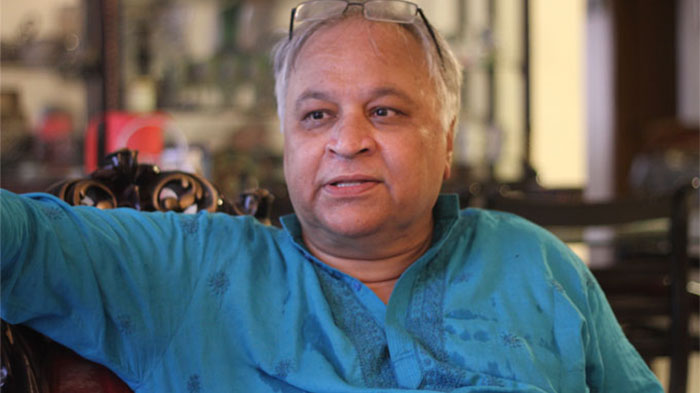
জাতীয়তাবাদের একূল-ওকূল
পিয়াস করিম
“যে জাতীয়তাবাদ নিজেকে অতিত্রম করার, নিজেকে ভেঙেচুরে আন্তর্জাতিক মানবতায় একীভূত করার নিরন্তন চর্চাকে নিজের মধ্যে ধারণ করতে পারে না, আজকের গণতান্ত্রিক আন্দোলনের কাছে তার কোনো মূল্য নেই।”
Continue reading “Piash Karim: The Two Sides of Nationalism”

Stop vilifying someone who warned us not to accept a blind nationalism, a patriotism that does not allow for discussion, examination or self-criticism.
Continue reading “Remembering Piash Karim – A Student’s Perspective”

“One doesn’t have to succumb to a teleological faith in historical progress to ascertain that language-based nationalism is a step forward from its religion-based counterpart. But it is also equally true that like any other form of identity, linguistic identity also includes some at the expense of others.”
Continue reading “Piash Karim (1958-2014) : Language, nation, and multiplicity”
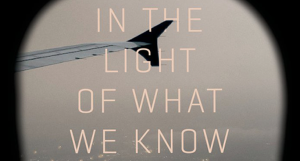
by Lamia Karim for alalodulal.org
A mathematician by training, Zia Haider Rahman’s debut novel is a literary masterpiece. It is a deeply unsettling novel where the protagonist’s ‘descent of hope’ reveals our loss of a shared humanity. The novel is a magisterial sweep of the landscape of the 21st century that is characterized by war, migration, and rootlessness.
Continue reading “In the Light of What We Know: A Novel that Defines Our Times”

My Own Private Palestine
by Naeem Mohaiemen for AlalODulal.org (originally published under a pen name in Daily Star)
Imagine a country where troubles started with British rulers. Drawing lines, separating people, making “country.” Continue reading “My Own Private Palestine”

আর একটু হাঁটো কবি
পথ চলা এখানে থামালে যে চলবে না,
আমার তো এখনও অনেক শেখার বাকি।
Continue reading “তোমার যাওয়া হবে না কবি/You Can’t Yet Leave, My Poet”

In scores of rallies and public meetings, workers raised questions about the luxurious life led by factory owners while they lived in sheer misery. `While you (factory owners) eat the chicken’s thigh, we chew its feet, its claws.”
‘Beauty’ for the Owner, ‘Deformity’ for the Labor
by Saydia Gulrukh Continue reading “‘Beauty’ for the Owner, ‘Deformity’ for the Labor”

Is this the Bangladesh we wanted?
Analyzing the Hindu Population Gap (2001-2011)
In October 2012, Prothom Alo published a frightening report that stated, in plain words, that over the last decade (which spans BNP, AL, and Military “CTG” government), the Hindu population of Bangladesh has dropped dramatically and continuously. Continue reading “Is this the Bangladesh we wanted? Analyzing the Hindu Population Gap (2001-2011)”

Liberation through the Gunday lens
By Fahima Durrat for AlalODulal.org
Factual errors made in a fictitious storyline may seem like a trivial matter, but they can hide icebergs. The iceberg that showed its tip in the film Gunday seems to have reappeared again in the headlines of Indian newspapers. Bangladesh protests against “distortion” of history, they report. Those inverted commas reveal a deeper source of offence.

By Muhammad Ahmedullah for AlalODulal.org
The English East India Company first visited Bengal in the early 1660s to purchase textiles. At that time Bengal was already a famed manufacturing centre of the finest cotton textiles in the world.

How did a dyslexic child become one of the world’s most celebrated designers and applied his sheer brilliance to develop products that have stood the test of time?
Mahmudul Islam provides a perspective on the role of parenting on a particular kind of normative success for AlalODulal.org.

The Face of Dipjol
By Arafat Kazi for AlalODulal.org
“Tolowar chalabo ami! Tor Dadima buritar matha kete aaj ami football khelbo. Kothaye? Kothaye Jannat Begum?”

Justice for Sabita and some related issues
By Tandra Chakma. Translated by Tibra Ali for AlalODulal.org
According to UN Women 25th of February is “Orange Day.” Every year this day is observed around the world as part of the campaign calling for end of violence against women. Continue reading “Tandra Chakma: Justice for Sabita and some related issues”

একুশের সংবাদ: আদিবাসী শিশু পড়বে নিজ ভাষাতেই
by Biplob Rahaman for AlalODulal.org
কিছুদিন আগে বিশিষ্ট আদিবাসী গবেষক, চাকমা রাজা দেবাশীষ রায়ের সঙ্গে আলাপ-চারিতা হচ্ছিল আদিবাসী শিশুর মাতৃভাষায় লেখাপড়ার বিষয়ে। Continue reading “আদিবাসী শিশু পড়বে নিজ ভাষাতেই”

মায়ানমারে চম্পকনগরের পথে
সুপ্রিয় তালুকদার for alaodulal.org
[ বংশানুক্রমে জানা যায় যে চাকমারা চম্পকনগর নামক স্থান থেকে পার্বত্য চট্টগ্রাম ও তৎসংলগ্ন অঞ্চলে এসেছে। কোন চম্পকনগর থেকে এসেছে তা নিয়ে মতভেদ থাকলেও নৃবিজ্ঞান, বিখ্যাত গবেষকদের মন্তব্য, প্রাপ্ত নির্ভরযোগ্য তথ্য এবং মায়ানমারের ইতিহাস বিশ্লেষণে আমি নিশ্চিত ছিলাম যে চাকমারা মায়ানমারের চম্পকনগর থেকে এসেছে। Continue reading “সুপ্রিয় তালুকদার: মায়ানমারে চম্পকনগরের পথে”

By Ikhtisad Ahmed for AlalODulal
History exists in the abstract. Vague theories are posited, established and refuted, but rarely felt. Over the years mankind has perfected this art-form into an exact science. Regrettably, Bangladesh never got the instruction manual. Continue reading “Ekusher Prothom Kobita”

If trolling through history reveals involvement of youth in political or socioeconomic upheavals, in case of Bangladesh their raison d’etre has been simple and straightforward: to bring about (political) change. Continue reading “Placing the Voices of Shahbag in Modern Narratives of Transnational Youth Protest – Part 2”

If trolling through history reveals involvement of youth in political or socioeconomic upheavals, in case of Bangladesh their raison d’etre has been simple and straightforward: to bring about (political) change. Continue reading “Placing the Voices of Shahbag in Modern Narratives of Transnational Youth Protest – Part 1”

টিনেজ যৌনকর্মীদের ছবি প্রকাশ, দারিদ্র্যতা শো করা ছাড়া অন্য কিছু না – মৃদুল শাওন
ফেসবুকে কয়েকজনরে দেখলাম একটা লিঙ্ক শেয়ার দিতাছে। ‘BuzzFeed’ নামের একটা আমেরিকান ওয়েবসাইটে বাংলাদেশের টিনেজ-যৌনকর্মীদের তিরিশটা ছবি। শিরোনাম- “30 Tragic, Beautiful Photos Of Teenage Prostitutes In Bangladesh”। Continue reading “Publishing the images of teen sex workers is nothing but a showcase of poverty”

Gold Rush Bangladesh!
The year was, I think, 2006. I was working for development of the furniture sector in Bangladesh, when I became friends with leading furniture manufacturers of the country. Continue reading “Rubaiyath Sarwar: Gold Rush – Bangladesh”

Nazrul’s Poetics: a polyphonic discourse of the multitude
Haider A. Khan for Alalodulal.org
Nazrul burst forth on Bengal’s literary scene at the end of the First World War, like a Nietszchean ‘dancing star’.[1] Continue reading “Haider A. Khan: Nazrul’s Poetics”

by Partha Sarker for Alalodulal
সাম্প্রদায়িকতা’র বিষয়গুলো নিয়ে আলোচনা একটু জটিল। দুটো কারণে:
এক: এই বিষয় নিয়ে একটা নির্মোহ আলোচনা করার জন্য যে দূরত্বের দরকার হয়, সেটা আমার মতো একজন মানুষের পক্ষে অর্জন করা সব-সময় খুব সহজ হয় না। Continue reading “Partha Sarker: Communalism – Perceptions, Experiences, and Lessons Learned”

Suchitra, please don’t go
by Ashif Entaz Rabi, translated by Nadine Murshid for AlalODulal.org

In 2013 Bangladesh experienced violence on a regular basis. We were forced to witness horrific deaths that perhaps normalized the atrocities that we witnessed. In the middle of the chaos that often follows violence and disasters, we also witnessed citizens unite for a cause, without any support from political parties; we witnessed volunteerism that emerged after the Rana Plaza collapse. Continue reading “Volunteerism after Rana Plaza”

গাহি সাম্যের গান/ I sing a song of Unity
Lyrics by Kazi Nazrul Islam
Photos by Shahnaz Parvin

“Taslima’s misery somehow leads us to the crossroad where an imminent change of path is indispensable. The consolidation of secular liberal voices in the subcontinent who would vociferate not against the chauvinism of religious majority of a nation but against all the extreme elements of any religion across the border and battle for the absolute separation of ‘church and state’ is the demand of the hour. Are we up for it?”
Continue reading “Taslima Nasreen, ‘Duhsahobas,’ and a TV cancellation”

Juxtaposed Realities: Dhaka
A short story by Mehreen Ahmed
On a chilled grey dawn, I hear a call out. I get out of bed fumbling, and reach for my shawl. Continue reading “Mehreen Ahmed: Juxtaposed Realities: Dhaka”

by Abdullah Shibli for AlaloDulal.org
Bangladesh, the country and its economy, is full of contradictions. To list a couple, while it is one of the world’s fastest growing nations, it has pockets of extreme poverty and malnutrition in urban and rural areas. Another paradox: for the last two decades it has been ruled by two political parties, the Awami League and the Bangladesh Nationalist Party, led by two head-strong leaders, who never can seem to agree on anything, but ran the gauntlet and survived many potentially dangerous threats, including religious fundamentalism, military takeovers, and internal revolt, to its fledgling democracy. Continue reading “The state of the Bangladesh economy”

by Pratik Deb for AlaloDulal.org
My first political procession was in the wake of arrival of George W. Bush in India. It was the beginning of March, 2006 and thus Iraq war was on its third year. I cannot exactly recall the stated purpose of his visit, but like all over the world the students of Kolkata did not hesitate to demonstrate their dissent against ‘western imperialism’. Communist Party of India (Marxist) led left front was still in the helms of affair in West Bengal Continue reading “West Bengal : a post-Poriborton analysis”

by Ikhtisad for AlaloDulal.org
***
Nazrul died today, newspaper says,
Spelt his name wrong, common mistake:
Unimportant, not an op-ed or commentary,
What does it matter anyway?
Father is well and mother survives,
My abode keeps me warm –
Veritable ivory tower, for far away
It is from the damned land.
Continue reading “Thine Kingdom Is Mine”

Election promises, the role of research in economic growth, and the involvement of accomplished Bangladeshis in diaspora Md Saif Islam, Professor, UC Davis, for AlalODulal.org (1) Although the horrific uncertainty over the elections has seemingly overwhelmed the country’s political environment, … Continue reading Role of research, and the involvement of diaspora

Nanu’s Songs
by Navine Murshid for AlalODulal.org
“This was the only glimpse that I had to the frenzy that Partition and famine caused in the lives of my closed ones; in Nanu’s paranoia, I saw the fear of starvation, the fear of losing family members, and the fear of the unknown.”

By Devasish Roy-Wangza for AlalOdulal
About thirty-five of us – including six women and about ten local men porters – took a seven-day trek from Farua village within Farua Union (“For-ua” in Tanchangya), Bileisori sub-district of Rangamati hill district to Bethuni Para, Ruma sub-district, Bandarban hill district, all within the Chittagong Hill Tracts (CHT) in southeastern Bangladesh, from 22 to 28 December, 2011.The team included former Farua Union Parishad (UP) member, Jacob Tripura,
Continue reading “Reingkhyong Lake: The Forgotten Frontier of Bangladesh”

Sadly, it is us, not them
by Srabanti Datta for AlalODulal.org
“If we take a thorough look, we’ll see that across every regime, we the citizens actually instigate, motivate, take part in, and take benefits of all the system malfunctions, regulation maneuvers, corruptions, power-abuses, non-performances, in numerous ways at every level.“
Continue reading “Sadly, it is us, not them”

PART 1: Ahmed Shamim “On the Hindu Question” (after Karl Marx)
Islam is encircled in peace. Its three core phonemes are: seen, laam, meem – which mean peace. Aslam means to surrender (oneself) to peace – Continue reading “Ahmed Shamim & Faruk Wasif: Debating “The Hindu Question” through Marx and Bauer”

Bathing in the Buriganga
Faheem Haider for AlalODulal.org


“Bipul did not get his due respect. His contribution to the music arena and also as a ‘shabda shainik’ in the Liberation War is immense. But the new generation hardly knows him. His songs were not been archived in an organised manner and did not get due coverage in the TV and radio media.” – Indramahon Rajbansh
Continue reading “Bipul Bhattacharya (1955-2013): Last Song Of Freedom”

Kallol Mustafa: Dissenting voices within GoB on Rampal
Editor’s Note: This is a translation of a Facebook post published by Kallol Mustafa on the 23rd of June, 2013. The text of the original note, which is in Bengali, follows the translation.
A letter from the secretariat of the Ramsar Convention on Wetlands was sent to the Department of Environment and Forests of Bangladesh on the 22nd of June 2011. In that letter the Ramsar secretariat wanted to know more about the following three matters from the Ministry of Environment and Forests: Continue reading “Kallol Mustafa: Dissenting voices within the Bangladesh Government on Rampal”

A.K.M Wahiduzzaman
ভূমিকা
বাংলাদেশকে বলা হয় নদীমাতৃক দেশ। আক্ষরিক অর্থেই এই দেশটির জন্মদাত্রী মা হচ্ছে নদী। গঙ্গা, ব্রহ্মপুত্র, মেঘনাসহ প্রায় ৭০০টি নদী-উপনদীর বয়ে আনা পলি লক্ষাধিক বছর ধরে জমে জমে এই দেশটির জন্ম হয়েছে। মাত্র ১,৪৭,৫৭০ বর্গ কিলোমিটার আয়তনের এই দেশে নদীর দৈর্ঘ্য প্রায় ২৪,১৪০ কিলোমিটার। Continue reading “The Indian Inter-river Linking Project and Bangladesh’s Looming Water Crisis”

By Adil Mahmood for AlaloDulal
An important point often missed in heated discussions on Border Killings is our national culture – that we share with our giant democratic neighbour – of holding life of the subaltern citizens as less valuable.
Continue reading “Border Killings and Our Indifference to Murder”

The Drug Triangle: The Poor as Collateral Damage
by Shaher Zaidi for AlalODulal.org, reprinted in Dhaka Tribune, Sep 10, 2013
Afsan Chowdhury recently posed this question: At the Bdnews roundtable on the Oishee incident and the role of media and police, some people said that addiction was much more in the English medium schools… How much of this is perceptional and how much real ? Continue reading “The Drug Triangle: The Poor as Collateral Damage”

The Matbar and the Bus
by Prashanta Tripura for AlalODulal.org
রাঙামাটি থেকে ঢাকা ফিরছিলাম গত রাতে, বিআরটিসির বাসে। যাত্রা শুরুর পর এক পর্যায়ে আমার আশেপাশের সহযাত্রীদের মধ্যে দেশোদ্ধারমূলক একটা উন্মুক্ত আলোচনা চলল কিছুক্ষণ, যাতে আমিও অংশ নিয়েছিলাম কিছুটা। Continue reading “Prashanta Tripura: The Matbar and the Bus”

When Freedom Emerges through Individuals~
by Rupam Dhrubo
The Self
I was born alone, and thus will I die. Am I a Muslim, or a Bengali, or a member of proletariat? These are what others shape me into. But the identity that exists before all these constructs is my own self. The individual me.
Continue reading “Rupam Dhrubo: When Freedom Emerges through Individuals”

My father would have been 87
by Tanvir Haider Chaudhury
It was my father’s birthday yesterday. Professor Mufazzal Haider Chaudhury would have been 87. He never got to approach that age because he was tortured and murdered at 45, the same age as I am now, by the Al-Badr militia. In 1971. Continue reading “My father would have been 87”

ALAL O DULAL analyses RMG 10 point manifesto
by Irfan Chowdhury, Farhad Mahmud and Zia Hassan for AlalODulal.org
Continue reading “ALAL O DULAL analyses RMG 10 point manifesto”

ঋতুরাজ, ঋতু নির্বিশেষে (The King of all seasons, despite seasons)
by Gargi Bhattacharya for AlalODulal.org
Stop all the clocks, cut off the telephone,
Prevent the dog from barking with a juicy bone,
Silence the pianos and with muffled drum
Bring out the coffin, let the mourners come. Continue reading “Rituparno Ghosh (1963-2013): The king of all seasons, despite seasons”

My loss did not have any vocabulary
Guest Post by Erinyes
For years, my loss did not have any vocabulary. There was no word that I could use in my mind. There was no word for it. Only “that”. Only “that” which I could not turn around or change. Continue reading “Erinyes: My loss did not have any vocabulary”


Savar Tragedy: We Need a Fundamental Shift in Mind-set
by Pavel Hoq for AlalODulal.org
The Savar building collapse last month was a catastrophic event, but it was not the first of such tragedies for us and probably won’t be the last either. Before the nation could recover from the Tazreen Fashion fire incident a few months ago in November 2012, the Rana Plaza collapse shook the country again. And by the time this piece was written, there were already more such news in the media including a Sea-Truck sinking with 100 on board on May 5th, leaving 8 dead and a garments factory fire in Mirpur, Dhaka on May 8th that killed 8 more people. Continue reading “Pavel Hoq: We Need a Fundamental Shift in Mind-set”

“This week, Fisher proposed to his readers what he titled “A fascinating map of the world’s most and least racially tolerant countries.” The deepest-red, or most racially intolerant, countries were India, Bangladesh and Jordan. Russia and China fell in the middle; much of Africa was left out for lack of data, but South Africa came out light blue (highly tolerant), and Nigeria light red (highly intolerant). Other highly tolerant countries included Pakistan and Belarus.” Continue reading “Siddhartha Mitter: The Cartography of Bullshit”

The Number: Ten Cents
by Michael Guerriero for The New Yorker

[W]hen you consider that these reforms happened in a country with a shaky government, recovering from tremendous civil strife, and building a garment industry from scratch, their success suggests that change is possible. As Locke succinctly put it, “If Cambodia can do it, why can’t Bangladesh?” Continue reading “James Surowiecki: After Rana Plaza”

Her husband, Shomlal Das quietly preparing for her cremation. They forgot to bring sindhoor. She is a married dead. She must wear sindhoor, someone from the small crowd whispered. They opened the bodybag. Part of her face was smashed, there was barely any hairline. Shomlal sprinkled sindhoor on her face... He pauses and sighs, “the government officer just treat every dead as muslim.”
Continue reading “Pramila Das: Even when they mourn, they mourn from the margin”

Nearly every rich country has gone through a “T-shirt phase” — an economic period in which there are a significant number of poor farmers who, rather than toil on unproductive land, accept harsh work conditions and low wages in textile and apparel factories. Continue reading “Adam Davidson: Economic Recovery, Made in Bangladesh?”

Of the Hefazat men killed yesterday, one was from the a factory in Dhaka. While not speaking with numbers, I think this highlights an important issue that many have been saying for some time. While we, with our elitist or middle class sensitivities, continue to look upon the Hefazatis as outlawed, faceless “fanatics” on the fringes (read: in the madrasas) in our society, they also live and work amongst us– our factory workers, our drivers and nightguards. Continue reading “Samia Huq: Who have we “defeated” and with what?”

I spent the last 2 days in Savar. A concerted effort of architects, civil engineers, disaster trained workers from Red Cross & other agencies, trained community groups, fire fighters, armed forces, all have collectively formed a task force, and are slowly using heavy equipment to surely though slowly cut the top (maps have been made of the structure etc.) and lift people, dead and alive, as well as other equipment to remove debris. The process is slow, but the time for the public action, which was amazing,THEY ARE OUR S/HEROES, the only ones who went inside, is now no more feasible. Continue reading “Khushi Kabir: They Are Our S/Heroes”

To BGMEA: How To Maintain Bangladesh’s Shining Image Abroad in Five Easy Steps
Guest Post by Shabnam Nadiya
1. Stop thinking that ‘compliance’ is a word to keep international buyers happy and begin to understand that it has to do with the safety of people. People like you and me. People whose labor creates that shining Bangladesh in the first place. People whose actual labor builds your fortunes. Continue reading “Shabnam Nadiya: To BGMEA, How To Maintain Bangladesh’s Shining Image Abroad in Five Easy Steps”

Who Will Bell the Cat?
Guest Post by Fariha Sarawat
Much has been said about who’s to blame for the story state of garments workers’ rights, safety and working conditions in Bangladesh.
Some people, including some local manufacturers, would like us to buy in to the narrative of exploitative buyers whose predatory negotiations force our manufacturers to cut costs (because they are afraid they would lose the order otherwise to China or others) in order to stay competitive and that leaves the latter with little (once costs of inputs, overheads etc have been deducted) to pay to the workers. Continue reading “Fariha Sarawat: Buyers are also culpable”

Made in Bangladesh: The Terror of Capitalism
by VIJAY PRASHAD
“In the Atlantic world, meanwhile, self-absorption over the wars on terror and on the downturn in the economy prevent any genuine introspection over the mode of life that relies upon debt-fueled consumerism at the expense of workers in Dhaka. Those who died in the Rana building are victims not only of the malfeasance of the sub-contractors, but also of twenty-first century globalisation.”

9 Proposals for Disaster Preparedness
Guest Post by Abu Ala Hasan for AlalODulal.org, just returned from Savar
Continue reading “Abu Ala Hasan: 9 Proposals for Disaster Preparedness”

Let Doraemon be in Bangla: Stop Kiddy-Hindi!
by Bratya Raisu; Translated by AlalODulal.org
Continue reading “Let Doraemon be in Bangla, Stop Kiddy-Hindi!”

On 22 March, Alal O Dulal was officially 1 year old. Our first post was a quick blog post by deyalpotrika on Bangladesh’s entry into the Asia cup final. Continue reading “A different anniversary”


Shahbag & Bengali Nationalism
by Paul James Gomes
I understand the movement has its own energy. Hundeds of thousands of people together has it’s own heartbeat. If we stand there we must feel we can do so much, we can change the world. Our eyes will water, if 50,000 people shout together “no”, a wave will run through our bodies. But why? What do we want, why are we here. Continue reading “Shahbag & Bengali Nationalism”